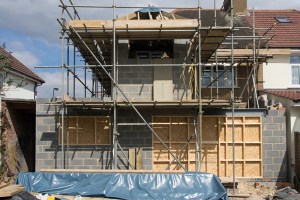On Friday, the first meeting of the National Clean Air Programme’s National Apex Committee revealed that 96 Indian cities have improved their air quality compared to 86 in 2019.
Bhupender Yadav, Environment, Forests, Climate Change Minister, expressed satisfaction at the improvement in air quality in cities. There is still much to be done. The urgent need to address the problem of air pollution in a holistic manner, with coordination and collaboration from all stakeholders, is evident.
Yadav stated that different cities have different factors that contribute to air pollution. Therefore, it is important to focus on the airshed.
The airshed approach considers all factors that affect and then influence the air pollution situation in a given area. He said that the Delhi-NCR has been using this approach since last year and other cities should adopt it.
The National Apex Committee, as part of the NCAP, met in hybrid mode, a release by the Environment, Forests and Climate Change Ministry stating that it was the first meeting.
The NCAP was introduced in 2019 and is currently being implemented by 132 cities. These cities are non-conforming to national ambient quality standards consecutively for five year. Out of the 132 cities, 124 include 34 million plus cities/urban agglomerations as identified by the 15th Finance Commission. It also covers eight million more cities that can receive performance-based grants to improve air quality.
NCAP has provided Rs 375.44 Crore for activities that improve the air quality in non-attainment urban areas during 2019-20 to 2020-21. For FY 2021-22, Rs 290 Crore was allocated to 82 municipalities.
The allocation for 2021-2026 of Rs 700 crore has been made to the programme. For FY 2020-21, the 15th Finance Commission granted a special grant to 42 million cities/urban clusters of Rs 4,400 crore. A total of Rs 12,139 crore has also been allocated to improve the air quality in 42 million cities/urban clusters for 2021-2022 and 2025-26.
NCAP is responsible to prepare and implement national-level action plans, state-level action plans, and city-level action plan of these 132 cites. It has a Centre-level Steering Committee, Monitoring Committee and Implementation Committee. Periodic reviews of implementation progress are conducted. So far, seven meetings have been held of Implementation Committees. Five of the Monitoring Committee members and three of Steering Committee members have met.
Ashwini Chaubey, Union Minister for Environment, Environment, Forest and Climate Change Secretary, R.P., attended to the Apex committee meeting. Gupta; CPCB Chair Tanmay Kumar, and other senior officers from the Ministry, in addition to almost 150 officials and experts from the States and other knowledge partner states, was also present at the meeting.
–IANS
niv/vd
(Only the headline, picture and text of this report may have been modified by Business Standard staff; all the rest of the content is generated from a syndicated feed.
 Dear Reader,
Dear Reader,
Business Standard has always tried to provide the most up-to-date information on current developments and their wider economic and political implications for the country. Your support and constant feedback have only strengthened our resolve to achieve these ideals. We will continue to keep you informed, updated and informed, even in these difficult times, despite Covid-19.
However, we have a request.
We need your support to continue offering you quality content as we fight the economic effects of the pandemic. Many of you who have subscribed for our online content have responded positively to our subscription model. We can offer you more relevant and better content if we have more subscribers. We believe in fair, credible and free journalism. Your support via more subscriptions can help us practice the journalism we believe in.
Support journalism of high quality Subscribe to Business Standard.
Digital Editor

 Dear Reader,
Dear Reader,